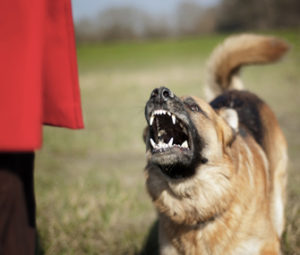Behavior modification
 Test for Aggression
Test for Aggression
Blood (or Cerebrospinal fluid) Test for CANINE AGGRESSION
Before working with canine aggression whether human or animal based, you will first need to obtain the following tests. These tests allow us and your veterinarian to determine the exact course of action to follow. Before starting ANY behavior modification program it will be necessary for the dog to under go a complete physical examination by a licensed veterinarian. Simple things such as an ear infection or sore throat, can cause aggression. Hypothyroidism can cause aggression.
Blood (or Cerebrospinal fluid) Test For:
Serotonin (CSF5-HIAA) (5-HT BI) (oxidase A) (MAOA)
Testosterone
Thyroxine (Thyroid Profiles)
Endocrine
Protein
CBC
Dopamine
There is speculation that there are some 50 potential medical causes for aggression in dogs. Some of the more commonly noted ones are listed below:
Thyroid-Dysfunction: Hypothyroidism is the most prevalent endocrine disease in dogs. The hypothyroid dog is generally thought of as being lethargic and mentally dull, however, aggression and hyperactivity are also common responses to a low thyroid level. Thyroid dysfunction as a potential cause of aggressive may go undiagnosed because the behavioral signs often precede the more traditional skin, coat and metabolic changes characteristic of hypothyroidism. This condition can be detected through a blood test and treated through synthetic hormones.
 Brain Chemistry: Serotonin is thought to play an important role in the neurochemical control of aggression in the brain. The family of SSRI drugs may be helpful in treating aggression related to brain chemistry.
Brain Chemistry: Serotonin is thought to play an important role in the neurochemical control of aggression in the brain. The family of SSRI drugs may be helpful in treating aggression related to brain chemistry.
Epilepsy: Seizures occurring in a region of the brain that controls aggression can cause sudden unprovoked aggression. Depending on the location of the area of the brain that is affected, a dog having a complex partial seizure may exhibit behavioral, but not physical, signs of the seizure, including aggression. These types of seizures cause distortions of thought, perception, “emotion” (an increase in fear, or aggression), and visual and auditory hallucinations. Physical signs in addition to aggression could include one or more of the following: sudden lip-smacking, chewing, “fly biting,” vocalization, hysterical running, cowering, vomiting, diarrhea, abdominal distress, excessive salivation, blindness, unusual thirst or appetite, and flank biting. Dogs that experience visible physical convulsions, are often more aggressive immediately following the seizure. Dogs in either state are not fully aware of what they are doing. Epilepsy is treatable with medication, but diagnosis is sometimes difficult in dogs that are experiencing complex partial seizures.
Canine Rage Syndrome: This condition is characterized by sudden episodes of aggression, often directed at the dog’s owner (or other people most often around the dog). Many owners report that the episodes are completely unpredictable. Others report that the episodes are triggered by specific stimulus that varies depending on the dog. The episodes are characterized by extreme aggressiveness, often including multiple bites or bite attempts, and the episodes stop as suddenly as the begin. Dilation of the dog’s eyes are often reported prior to the attack. And the dog is often said to seem confused or “remorseful” about what he has done following the attack. There is a lot of speculation about the cause of this syndrome. The two most common theories is that it is either a form of seizure, or that these dogs have an underlying chemical imbalance (such as reduced serotonin levels) that are associated with similar violent outbursts in people. Many people prefer to refer to canine rage syndrome as idiopathic aggression because the condition is not really related to human emotions such as “rage” or “anger.” However, the term idiopathic aggression more properly refers to sudden unpredictable outbursts in which no underlying neurological or other medical condition is present. Canine Rage Syndrome is sometimes also referred to as Behavioral Seizure disorder.
Hypoglycemia/Diabetes: Dogs, like humans, can be either diabetic or hypoglycemic. Both diabetic and hypoglycemic dogs can go into a state of very low blood sugar. Symptoms include moodiness, irritability, aggression, staggering or collapse, weakness, and staring with a glassy-dazed look. Hypoglycemia and diabetes are easily detected through a blood test.
 Cognitive Dysfunction Syndrome: degenerative changes in the brain, resulting in brain cell loss can cause aggression in dogs. This condition is typically associated with advanced age. In addition to irritability and aggressive behavior some of the other symptoms may include sudden unexplainable anxiety and/or disorientation, aimless wandering, inappropriate elimination (“accidents” in housetrained dogs), social detachment, changes in activity level, and changes in sleep-wake patterns.
Cognitive Dysfunction Syndrome: degenerative changes in the brain, resulting in brain cell loss can cause aggression in dogs. This condition is typically associated with advanced age. In addition to irritability and aggressive behavior some of the other symptoms may include sudden unexplainable anxiety and/or disorientation, aimless wandering, inappropriate elimination (“accidents” in housetrained dogs), social detachment, changes in activity level, and changes in sleep-wake patterns.
Brain Tumors: A brain tumor can cause changes in temperament including aggression, confusion, irritability, increased vocalization, apathy, hyper excitability, tremors, weakness, disorientation, visual deficits, circling, falling, sleep habits, abnormal postures, exaggerated gait, head tilt, pain, house soiling, staring, trembling, decreased appetite, seizures, paralysis.
Encephalitis: Both bacterial and viral encephalitis (distemper) are known to cause aggression in dogs. But any condition that causes inflammation of the brain can cause neurological signs, including aggression.
Head Trauma: When the brain has suffered an injury, swelling or bleeding may result. This can in turn interfere with the normal function of that part of the brain causing unusual neurological symptoms, including aggression.
Diagnosis and Treatment
 Problems with diagnosing a dog as “aggressive” arise from human misunderstanding of canine social systems, canine signaling, and canine anxieties about contextually appropriate responses to unfamiliar situations. A diagnosis of an “aggressive temperament” should not be based on a one-time event. Often the dog has been displaying signs of an upcoming problem (unbeknownst to the owner) and has been allowed to continue the behavior until it has escalated to a full scale problem. Diagnosis of aggression, and the cause of the aggression, requires an evaluation (by qualified medical and behavioral specialists) of the type of behavior that the dog is displaying, the dog’s medical condition, its background (if known), and its present environment. Treatment for aggressive behavior can include medication, but most often includes behavior modification in conjunction with an experienced behaviorist or trainer. Rehabilitating a truly aggressive dog is not an easy fix. Aggressive behavior does not develop overnight, and cannot be “cured” overnight – or by sending the dog away to a training camp. Management of an aggressive dog requires constant commitment, consistency, and follow through from the owner of the dog, for the life of the animal.
Problems with diagnosing a dog as “aggressive” arise from human misunderstanding of canine social systems, canine signaling, and canine anxieties about contextually appropriate responses to unfamiliar situations. A diagnosis of an “aggressive temperament” should not be based on a one-time event. Often the dog has been displaying signs of an upcoming problem (unbeknownst to the owner) and has been allowed to continue the behavior until it has escalated to a full scale problem. Diagnosis of aggression, and the cause of the aggression, requires an evaluation (by qualified medical and behavioral specialists) of the type of behavior that the dog is displaying, the dog’s medical condition, its background (if known), and its present environment. Treatment for aggressive behavior can include medication, but most often includes behavior modification in conjunction with an experienced behaviorist or trainer. Rehabilitating a truly aggressive dog is not an easy fix. Aggressive behavior does not develop overnight, and cannot be “cured” overnight – or by sending the dog away to a training camp. Management of an aggressive dog requires constant commitment, consistency, and follow through from the owner of the dog, for the life of the animal.
If your dog is exhibiting aggressive behavior seek the medical advice of a licensed veterinarian, and training advice from a professional animal behaviorist knowledgeable about your breed of dog and the specific type of behaviors that you are concerned about. Many licensed veterinarians keep a list of recommended behaviorists in your area.

